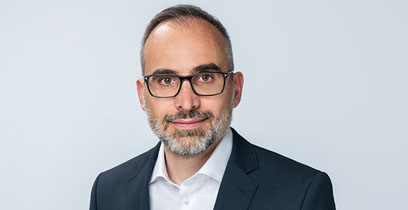
The beginning of the year is an excellent moment to reflect on where you are, what has brought you there and in which areas change would be beneficial. Whether you are looking for a change of position or a change of career, here are five easy steps to get you started:
1. Identify the emotional position from which you are living your current career situation
Depending on factors such as upbringing or cultural background, a similar situation may bring out different emotions for different people. This can vary from experiencing a current career situation with positive emotions – satisfaction or fulfillment, for example – to negative emotions – stress, pressure or boredom.
Think about how you feel each Monday morning before starting work and be honest with yourself. Are you excited? Thrilled, even? Or do you feel bored? Burdened? Are you making career decisions based primarily on fear – the fear of losing status or fear of rejection? Being aware of these emotions will help you clarify whether your present career situation enriches you or drains you, and whether changes in this area would be beneficial.
2. Clarify your career goals and pinpoint why those goals are relevant
Now that you are aware of your emotions about where you are now, determine where you want to go. More importantly: why are those objectives (and not others) relevant for you? Try to identify which beliefs, past experiences or behaviors led you to choose certain goals.
Many executives define their career goals as obtaining a position of certain characteristics (for example industry or level of responsibility) within a specific timeline. While this is an acceptable starting point, try to go deeper and understand what obtaining such a role would give you as an individual. Is it recognition? Is it a feeling of achievement? Is it something else? Once you identify what achieving this goal would bring you, try rephrasing your original goal in these specific terms.
3. Do you really want what you think you want?
Evaluate whether reaching your goals would improve consistently your current emotional state. If your career goals would worsen your stability, consider whether this is something that would be sustainable for you in the long term. Do not forget to bring in important personal factors into your analysis, such as, your family situation or any other relevant aspect that would impact your emotional situation.
4. Identify what types of changes are needed
You may require a change of job (or even career) to achieve your professional goals. But remember that very often, changing how we perceive, experience or act in our current role can lead to surprising improvements in our professional situation.
For example, if you are bored in your current role and your goal is to have a challenging position, is it a change of role really required? What if you changed how you acted in your current position? Perhaps viewing the situation in a new, more positive light would allow you to have more enjoyment in what you do.
5. Locate the roadblocks to change
Once you are clear about your goals and the changes needed to obtain them, the most difficult part comes in: implementation. The major limitations to achieving our goals tend to be internal. These are most often in the form of limiting beliefs, perceptions, negative behavior patterns or past experiences that lead us to avoid all the necessary steps to reaching our goal.
Every person has roadblocks to change – this is normal and varies from person to person. For some individuals, this may be beliefs they hold about themselves, their company or their colleagues. For others, it may be the memory of negative past experiences. Try to identify these roadblocks and determine how they are limiting you. This will help you map how to overcome them, clearing the way to transform your current career situation.
Having trouble completing these steps on your own? Working with a coach can help you to be more self-aware, bring clarity to your professional situation and transform those areas of your career that could benefit from change.
For more information, please contact IMD Career Services, which provides career coaching services as part of its MBA Alumni offering.
Alvaro Gaya (MBA 2003) is an experienced career coach who works with the IMD career coaching program. www.gaya-businesscoaching.ch


